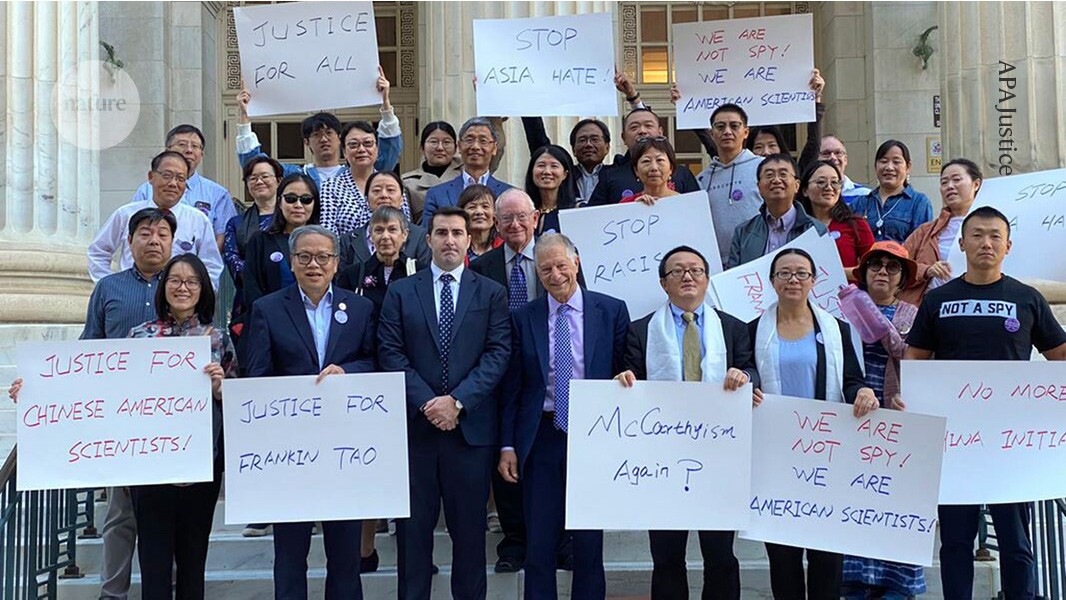‘He’s at the Apex of Power Now’: A Preview of Trump’s Second Term
'He wants people that can disrupt alongside him'


One by one, they had all trickled into the walnut-paneled Mansfield Room. Donald Trump had just made another improbable return: his first visit to the U.S. Capitol since a mob of his supporters stormed the building on Jan. 6, 2021. Now, just days away from reclaiming power, the President-elect was there to meet with the 52 Republican Senators of the 119th Congress about advancing his legislative agenda: a massive border security package, extending his 2017 tax cuts, and dispensing with the debt ceiling. [time-brightcove not-tgx=”true”]
After more than an hour of wrangling over strategy, Senator Shelley Moore Capito of West Virginia, tried to wrap things up, according to one of the GOP senators present. “Sir,” she told Trump, “I want to respect your time and get you out of here so you can move on to your other commitments.” Trump raised his eyebrows and interjected. “I have no other commitments,” he said. “This is my legacy.” The Jan. 8 meeting lasted nearly another hour.

Despite Trump’s visions of enhanced executive authority, it was a recognition that his success will rest on the cooperation—or capitulation—of others. Even before his inauguration, he has been racking up wins. When Israel and Hamas announced a ceasefire after 15 months of war, Israeli officials credited Trump’s demand that the terror group release the hostages or else “all hell will break loose.” As President Biden warned in his farewell address of an ultra-wealthy oligarchy taking shape, the corporate titans he was referencing were cozying up to Trump in unsubtle displays of anticipatory obedience. Congressional Republicans similarly continue to bend to his will—whether it’s the few House members who threatened to derail Mike Johnson’s reelection for Speaker of the House, or the key Senator who expressed doubts about former Fox News host Pete Hegseth as Defense Secretary. Ultimately, they all backed down. “The way he went to bat for Mike Johnson and cracked down on dissenters sent a message to me and a lot of others to back off,” says a Republican Senator close to Trump. “Don’t ruin this.”
Even with all that political capital, Trump still faces limits to his power. Republican legislators balked at his request to use recess appointments to install his more controversial Cabinet picks. When it became clear there were enough holdouts to tank his choice of Matt Gaetz for Attorney General, Trump told the former Florida congressman to step aside. Today, he’s navigating the competing demands of Republicans in purple and ruby red districts as they try to carve out a legislative framework for his signature domestic priorities. And despite Trump’s GOP having full control of Washington, the threat of internecine divisions derailing his plans looms large. “When you have majorities in each chamber,” a Trump advisor says, “the worry is that it would become a circular firing squad.”
That remains a possibility. For Trump, who won on a promise to reshape government, the greatest obstacle may be just how far his own party is willing to let him go. In private meetings, sources close to Trump say the President keeps expressing a desire to move fast, fully aware that the window for maximal disruption won’t stay open for long. “Your biggest opportunities for change are in the first couple of years, and even more so in the first 18 months, because that’s ahead of elections,” says a senior Trump official. “He’s at the apex of power now. Every month that goes by, he has a little bit less.”
If you want to know how a candidate will govern, the clues are often in how they campaigned. Trump’s 2016 bid was marked by chaos, leaking, and vicious infighting. He trudged through three separate campaign managers. His 2024 campaign was far more disciplined; there was hardly any turnover and they succeeded in ways few saw coming: broadening the tent while pleasing his base, winning the popular vote, and clinching a decisive Electoral College victory. Much of that credit goes to Susie Wiles, his de facto underboss who will serve as White House Chief of Staff.
So there was little surprise when Trump asked Wiles to take on the vital role. Inside the West Wing, she will be tasked with maintaining order and cohesion among the executive branch and Trump’s far-flung coalition. One of Trump’s deputy chiefs of staff, James Blair, will be a liaison to Congress. Another longtime advisor, Stephen Miller, will have broad discretion to shape executive policy, while Dan Scavino will manage Trump’s social media and be a constant presence by his side. Taylor Budowich, a seasoned MAGA stalwart, will oversee hiring in the executive branch and media strategy. All of them worked on the last campaign and will try to translate an operation that worked for them on the trail into a model for unconventional governance.

As Trump’s Cabinet picks were sending shockwaves through Washington late last month, Wiles laid out a theory of her boss’s unorthodox appointments in a call with senior transition staff: “RFK is going to be a disruptor, Elon Musk is going to be a disruptor. Kash Patel is going to be a disruptor.” One of Trump’s biggest regrets of his first term, he told TIME in April, was the people he hired who tried to block his most norm-shattering, and in some cases dangerous, ideas. But now he’s been elected on an unambiguous promise to wage war on the institutions of government and deliver sweeping transformations. His Cabinet nominees, Wiles told her underlings, according to two sources familiar with the call, were chosen to deliver on that promise. “He wants people that can disrupt alongside him.”
Read More: Donald Trump’s Disruption Is Back
To critics, Trump’s nominations reflect another impulse: to install obedient, often inexperienced, acolytes who will acquiesce to his demands to turn the government into an instrument for his own self-interest. In some instances, Trump’s antagonists see an explicit quid pro quo. In exchange for Kennedy endorsing Trump last summer, says Lisa Gilbert, co-president of the progressive government watchdog Public Citizen, Trump picked the vaccine critic to lead the Department of Health and Human Services. In exchange for Musk donating $250 billion to his campaign, she alleges, Trump rewarded the billionaire whose businesses hold various U.S. government contracts with his own commission tasked with shrinking the size of government. “There is no clearer instance of a direct tit-for-tat interaction,” says Gilbert.
Beyond Trump’s Cabinet and inner circle, the administration expects to harness an array of outside groups, social media influencers, and right-wing media personalities to shape narratives and apply pressure on Republicans who might obstruct the Trump agenda. They were already deployed in full force to squash any GOP squeamishness on Hegseth, who Trump wants to lead the Pentagon despite questions about his experience, his views, and accusations leveled against him of alcohol abuse and sexual assault that he’s denied. When Iowa Sen. Joni Ernst, a veteran up for re-election in two years, expressed reservation about Hegseth, who has said women should not serve in combat, she drew an onslaught of social media harassment, revved up by the likes of Steve Bannon and Gaetz, now an anchor for the pro-Trump One America News Network. “How do I make it stop?” Ernst asked one of her fellow Republican senators, who spoke on the condition of anonymity to discuss private conversations. “She toe-dipped in her opposition,” the GOP senator tells TIME, “and felt the immediate backlash.”
Another source familiar with the matter tells TIME that a Trump ally informed Ernst that the President would support a primary challenge against her in Iowa—where Trump won the caucuses last year by roughly 30 points—if she blocked Hegseth. At the same time, billionaire Tesla CEO Elon Musk quietly backchanneled a message to Senators, according to two sources familiar with the matter: anyone who votes against Trump’s Cabinet secretaries will face a multi-million dollar Musk-funded Super PAC to oust them from office in their next primary. Ernst ultimately signaled she would back Hegseth.
“That’s the reality that all these members live in the next couple years here,” says a source close to Trump. “They all get in line at the end of the day.”
There’s still always the potential for trouble in a MAGA paradise. There are competing factions within Trump’s orbit with their own agendas. Some of that has already spilled into public view, such as Bannon’s tussle with Musk over H1B visas, through which U.S. companies, including Musk’s, import skilled workers from other countries. To Trump, the argument is part of the fun—and his decision-making process. “He doesn’t mind the squabble,” says a Trump aide. “He likes to see the conversation hash out and see where the conversation online lives and where the base is on things.”

In the end, Trump sided with the SpaceX founder over whether the H-1B program was worth continuing. Trump, after all, uses them at his clubs and hotels. Plus Musk has more than $300 billion. Bannon does not. But over the coming years, such quarrels may serve as a barometer for which voices in his ear will have the most influence, and the extent to which Trump remains sensitive to public pushback. Trump aides say he is more intent than he was in his first term on remaking the federal bureaucracy, and less concerned with appeasing those who might stand in his way. “His risk tolerance is higher,” says a senior Trump official.
For everything Trump may be able to accomplish without the help of the legislature, every President aims to sign major, far-reaching pieces of legislation. Trump’s checklist in Congress will be passing a border security bill and making his tax cuts permanent. There’s also the debt ceiling, which Congress must agree to either raise or eliminate entirely. In public and in private, Trump says he would prefer to pass his border security measures and raise the debt ceiling in one package, whereas some leading members of Congress insist on doing them separately. On some level, it’s a simple process argument, but it’s also a test of how Trump will handle resistance from his own party after becoming accustomed to their subservience over the course of his march to power.
Perhaps most of all, it may reveal whether Trump, ten years into his life as a politician, has learned that most Washington of lessons: sometimes you need to lose a few fights to win a bigger one. Toward the end of his Jan. 8 meeting with the Republican Senators, he pushed hard for one bill but, by the end, eventually relented that he could accept either method. All that really matters, he said, was that it gets done. “I’ll sign one bill, I’ll sign two bills. I’ll sign 10 bills,” he said. “Whatever it takes.”
What's Your Reaction?















































































